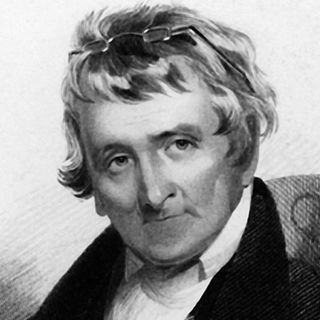A Quote by Archibald Alexander
No one was ever saved because his sins were small; no one was ever rejected on account of the greatness of his sins. Where sin abounded, grace shall much more abound.
Related Quotes
If, in the case of the worst sinners and those who formerly sinned much against God, when afterwards they believe, the remission of their sins is granted and no one is held back from baptism and grace, how much more, then, should an infant not be held back, who, having but recently been born, has done no sin, except that, born of the flesh according to Adam, he has contracted the contagion of that old death from his first being born. For this very reason does he [an infant] approach more easily to receive the remission of sins: because the sins forgiven him are not his own but those of another
We are saved from nothing if we are not saved from sin. Little sins are pioneers of hell. The backslider begins with what he foolishly considers trifling with little sins. There are no little sins. There was a time when all the evil that has existed in the world was comprehended in one sinful thought of our first parent; and all the now evil is the numerous and horrid progeny of one little sin.
To judge sins is the business of one who is sinless, but who is sinless except God? Who ever thinks about the multitude of his own sins in his heart never wants to make the sins of others a topic of conversation. To judge a man who has gone astray is a sign of pride, and God resists the proud. On the other hand, one who every hour prepares himself to give answer for his own sins will not quickly lift up his head to examine the mistakes of others.
Christ will be master of the heart, and sin must be mortified. If your life is unholy, then your heart is unchanged, and you are an unsaved person. The Savior will sanctify His people, renew them, give them a hatred of sin, and a love of holiness. The grace that does not make a man better than others is a worthless counterfeit. Christ saves His people, not IN their sins, but FROM their sins. Without holiness, no man shall see the Lord.
The assurance of His total forgiveness of our sins through the blood of Christ means we don't have to play defensive games anymore. We don't have to rationalize and excuse our sins. We can call sin exactly what it is, regardless of how ugly and shameful it may be, because we know that Jesus bore that sin in His body on the cross.
Our Lord Jesus is ever giving, and does not for a solitary instant withdraw his hand. As long as there is a vessel of grace not yet full to the brim, the oil shall not be stayed. He is a sun ever-shining; he is manna always falling round the camp; he is a rock in the desert, ever sending out streams of life from his smitten side; the rain of his grace is always dropping; the river of his bounty is ever-flowing, and the well-spring of his love is constantly overflowing.
To free a man from suffering, he must be set right, put in health; and the health at the root of man's being, his rightness, is to be free from wrongness, that is, from sin. A man is right when there is no wrong in him. I do not mean set free from the sins he has done: that will follow; I mean the sins he is doing, or is capable of doing; the sins in his being which spoil his nature — the wrongness in him — the evil he consents to; the sin he is, which makes him do the sin he does.
To say that a man is sinful because he sins is to give an operational definition of sin. To say that he sins because he is sinful is to trace his behavior to a supposed inner trait. But whether or not a person engages in the kind of behavior called sinful depends upon circumstances which are not mentioned in either question. The sin assigned as an inner possession (the sin a person "knows") is to be found in a history of reinforcement.
Sin is more dangerous than wild bears, more deadly than blazing forest fires. Ask Nebuchadnezzar, who lost his mind because he refused to deal with his pride. Ask Samson, who was reduced to a pathetic shred of a man because he never got control over the lusts of his flesh. Ask Achan and Ananias and Sapphira, who all lost their lives over “small,” secret sins.
You know, people say that today. "I am a saved sinner." That is like saying you are a married bachelor. That is like saying you are an honest thief, or a pure harlot. you can't be a saved sinner. You are either saved or you are a sinner. He came. "Thou shalt call his name Jesus. He shall save his people from their sins."



































